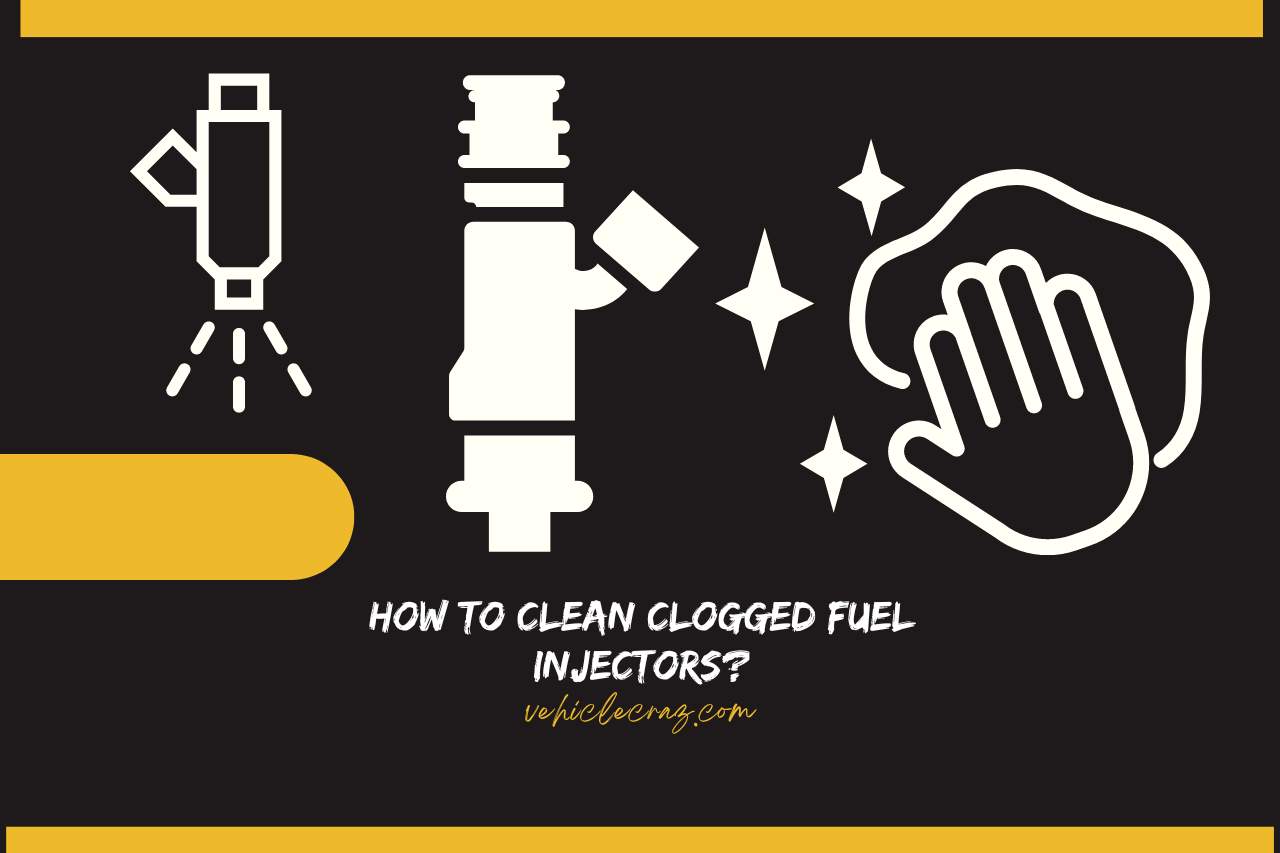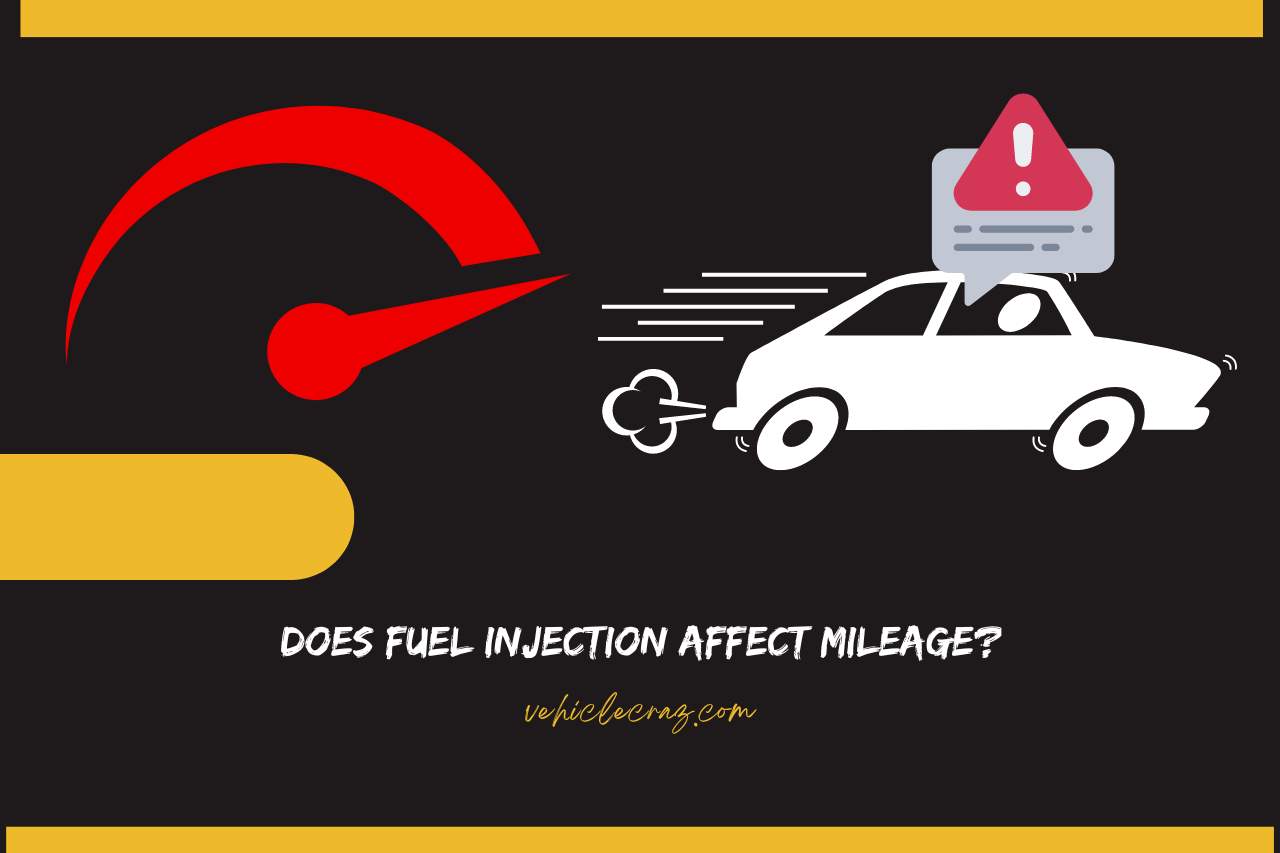Does Fuel Injection Affect Mileage? Unraveling Its Influence!
Fuel injection is a crucial step in the combustion cycle. If fuel injectors are unable to fulfill their duty of injecting fuel into the combustion at the right time, the entire cycle becomes slow. Accordingly, fuel injection can affect the gas mileage in your vehicle. In this comprehensive guide, we will be discussing the importance of fuel injection, especially for achieving better gas mileage. What’s more, you will be able to learn the signs of bad/clogged fuel injectors and how to maintain their cleanliness for optimal performance.
How Do Fuel Injectors Work?
Fuel injectors work by delivering the fuel to the combustion chamber, optimizing combustion for engine performance and fuel efficiency.
Here’s a concise overview of its mechanism.
- Spraying Fuel: Fuel injectors spray pressurized fuel directly into the combustion chamber or intake manifold, ensuring a finely atomized mist for efficient combustion.
- Pulse Width Modulation (PWM): Then, the engine control unit (ECU) regulates the duration of fuel injection pulses, known as pulse width modulation. This determines the amount of fuel delivered based on engine requirements.
- Sensors and Feedback: Various sensors, including oxygen sensors, provide feedback to the ECU, allowing it to adjust the fuel injection duration for optimal air-fuel mixture.
- High Pressure: Fuel injectors operate under high pressure, often supplied by a fuel pump, to ensure precise and controlled injection.
- Sequential Injection: In modern systems, injectors can operate sequentially, delivering fuel to each cylinder individually for better timing and efficiency.
Does Fuel Injection Affect Mileage?
Yes, fuel injection affects the gas mileage. A malfunctioning or clogged fuel injector can have a significant negative impact on gas mileage. Let’s discuss how a bad fuel injector affects the fuel efficiency of your vehicle.
- Incomplete Combustion: A faulty injector may not deliver the right amount of fuel or may spray it unevenly. As a result, the combustion will be incomplete. This results in wasted fuel and reduced efficiency.
- Rich or Lean Air-Fuel Mixture: If a fuel injector is stuck open, it can cause a rich air-fuel mixture (too much fuel), leading to poor mileage. In contrast, a stuck-closed injector can create a lean mixture (too little fuel), also decreasing fuel efficiency.
- Reduced Engine Performance: Malfunctioning injectors can lead to decreased engine power and efficiency, causing the engine to work harder and consume more fuel to maintain performance.
- Increased Emissions: Inefficient combustion due to bad injectors can result in higher emissions, contributing to environmental pollution and potential regulatory issues.
- Engine Misfires: A faulty injector can cause engine misfires, further reducing fuel efficiency and potentially causing long-term damage to the engine.
Due to these potential negative effects, it’s essential to address any issues with fuel injectors promptly.
Regular maintenance, such as cleaning or replacing injectors as needed, will help prevent these problems and ensure efficient fuel delivery.
What are the Signs of Bad Fuel Injectors?
The signs of a bad fuel injector are poor fuel economy, rough idle, engine misfires, and so on. Recognizing these symptoms is crucial for maintaining optimal engine performance. So, go through the following points attentively.
- Poor Fuel Economy: A noticeable decrease in gas mileage could indicate inefficient fuel injection, leading to wasted fuel.
- Rough Idle: If the engine idles unevenly or has a rough, shaky idle, it may be a sign of uneven fuel delivery from malfunctioning injectors.
- Engine Misfires: Misfires, characterized by a lack of power or a sputtering sensation while driving may result from a bad fuel injector since it affects the air-fuel mixture.
- Engine Stalling: Stalling, especially when idling or slowing down, can be caused by inconsistent fuel injection, affecting engine stability.
- Hesitation or Lagging Acceleration: Poor acceleration response or hesitation during acceleration can be noticed when the fuel injectors are not delivering the right amount of fuel promptly.
- Excessive Exhaust Smoke: Black smoke from the exhaust could signal a rich fuel mixture, possibly caused by a stuck-open fuel injector.
- Check Engine Light: The illuminated check engine light on the dashboard may indicate various issues, like problems with the fuel injection system.
- Increased Emissions: If the vehicle fails emissions tests or emits a noticeable increase in pollutants, it could be linked to malfunctioning fuel injectors affecting combustion efficiency.
- Strange Engine Sounds: You may notice some unusual noises, such as clicking or tapping from the engine, which are caused by malfunctioning fuel injectors.
- Difficulty Starting: Difficulty starting the engine or prolonged cranking may be a result of insufficient fuel delivery from malfunctioning injectors.
If you observe any of these signs, we recommend having your vehicle inspected by a qualified mechanic to identify and address potential issues with the fuel injectors.


How to Clean Clogged Fuel Injectors?
Cleaning clogged fuel injectors is essential for maintaining optimal engine performance and fuel efficiency. If you are inexperienced at cleaning fuel injectors, the following guide will be helpful to you.
- Fuel Injector Cleaner Additive: Choose a high-quality fuel injector cleaner additive. Add it to the fuel tank according to the product’s instructions before filling up with fuel.
- Choose the Right Cleaner: Next, select a cleaner that is compatible with your vehicle’s fuel system and recommended by the manufacturer.
- Top-Quality Fuel: Use a high-quality fuel to ensure the effectiveness of the cleaner. Premium or mid-grade fuels with cleaning additives can be beneficial.
- Drive Under Normal Conditions: After that, you should drive your vehicle under normal operating conditions to allow the cleaner to circulate through the fuel system and clean the injectors.
- Repeat if Necessary: Depending on the severity of the clog, you may need to repeat the process for a more thorough cleaning.
- Professional Cleaning Services: It is advisable to hire a professional cleaning service if the clog persists or if you prefer a more comprehensive cleaning. Professional mechanics can perform a direct cleaning using specialized equipment.
- Ultrasonic Cleaning: For severe clogs, ultrasonic cleaning may be required. This involves removing the injectors and cleaning them with ultrasonic waves to dislodge stubborn deposits.
Remember to follow the manufacturer’s recommendations and use cleaners designed for your specific fuel system. Regular maintenance and preventive measures can help keep fuel injectors clean and maintain optimal engine performance.
You May Also Like
- How Often to Use Fuel Injector Cleaner? Unlocking Peak Performance!
- Does Fuel Stabilizer Expire? (Risks & Solutions)
- How to Dispose of Old Fuel? (Step-by-Step Guide)
- How to Drain a Fuel Tank without Removing It? No Need for Removal!
- Does Gas or Diesel Get Better Mileage? Unveiling the Truth!
- Does AC Affect Gas Mileage? Understanding the Impact!


I’m Alex, a seasoned mechanical teacher with over 20 years of hands-on experience in Australia. My passion for all things automotive has driven me to establish this blog, aiming to share my wealth of knowledge and expertise with fellow enthusiasts, DIYers, and anyone keen on understanding the mechanics behind the machines we rely on daily.


![Does The Odometer Reset When The Engine Is Replaced? [Answered]](https://vehiclecraz.com/wp-content/uploads/2023/09/7-768x512.jpg)




